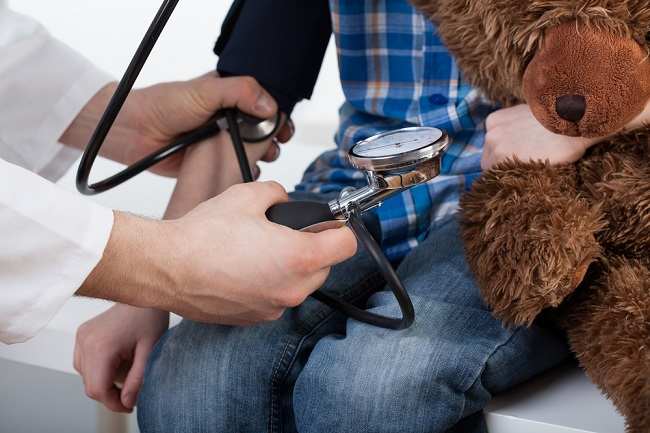Tigecycline is a drug used to treat bacterial infections of the organs in the abdomen (intra-abdominal), severe skin infections, or pneumonia. This drug is available in the form of an injection that can only be given by a doctor or medical officer under the supervision of a doctor.
Tigecycline works by inhibiting the formation of proteins that are essential for the growth and development of bacteria. Keep in mind that this medicine is only used to treat bacterial infections, it cannot be used to treat viral infections.

Tigecycline Trademark: Tygacil
What is Tigecycline
| group | Prescription drugs |
| Category | Glycycline tetracycline antibiotics |
| Benefit | Treating infections of the organs in the abdomen (intra-abdomen), severe skin infections, or pneumonia |
| Used by | Mature |
| Tigecycline for pregnant and lactating women | Category D: There is positive evidence of risks to the human fetus, but the benefits may outweigh the risks, for example in dealing with life-threatening situations. Tigecycline is not known to be absorbed into breast milk or not. If you are breastfeeding, do not use this medicine without consulting your doctor first. |
| Drug form | Inject |
Precautions Before Using Tigecycline
Tigecycline injection should only be given by a doctor or medical personnel under the supervision of a doctor.
Here are the things you should pay attention to before using tigecycline:
- Tell your doctor about any allergies you have. Tigecycline should not be given to patients who are allergic to this drug.
- Tell your doctor if you have or are currently suffering from liver disease.
- Tell your doctor if you are taking certain medications, supplements, or herbal products.
- Talk to your doctor if you plan to vaccinate with a live vaccine, such as the BCG vaccine or typhoid vaccine, while on treatment with tigecycline.
- Tell your doctor if you are pregnant, breastfeeding, or planning a pregnancy. Use effective contraception while on treatment with tigecycline to prevent pregnancy.
- Do not drive a vehicle or do activities that require alertness after using tigecycline, as this medicine can cause dizziness.
- Avoid direct sunlight and always use sunscreen when you are outdoors, because tigecycline can make your skin more sensitive to sun exposure.
- Report to your doctor if you have an allergic drug reaction, serious side effects, or overdose after using tigecycline.
Dosage and Rules of Use Tigecycline
Tigecycline will be injected directly by a doctor or medical officer under the supervision of a doctor. The following is the dose of tigecycline for adults divided according to the condition to be treated:
- Condition: Pneumonia
The initial dose is 100 mg on the first day, followed by a further 50 mg dose, by infusion given over 30–60 minutes, every 12 hours. The duration of treatment is 7–14 days.
- Condition: Infections of the organs inside the abdomen (intra-abdomen) or severe skin infections
The initial dose is 100 mg on the first day, followed by a further 50 mg dose, by infusion given over 30–60 minutes, every 12 hours. The duration of treatment is 5–14 days.
How to Use Tigecycline Correctly
Tigecycline injection will be given directly by a doctor or medical officer under the supervision of a doctor through a vein (intravenous / IV). Generally, this drug is given every 12 hours.
Follow the advice and advice of your doctor while you are on treatment with tigecycline. Do not stop taking medication without consulting your doctor first.
Tigecycline Interaction with Other Drugs
The following are some of the effects of interactions that may occur when tigecycline is used with other medicines:
- Enhanced anticoagulant effect of warfarin
- Decreased effectiveness of live vaccines, such as typhoid vaccine or BCG vaccine
- Increased risk of developing inflammation of the pancreas (pancreatitis) when used with bexarotene
- Decreased effectiveness of birth control pills
- Increased risk of occurrence sunburn when used with aminolevulinic acid
Tigecycline Side Effects and Dangers
Side effects that can arise after using tigecycline include:
- Headache or dizziness
- Stomach pain, nausea, vomiting, or heartburn
- Pain, redness, or swelling at the injection site
Report to your doctor if you have an allergic drug reaction or experience more serious side effects, such as:
- Fast or irregular heartbeat
- Severe headache, blurred vision, or vomiting
- Severe diarrhea that doesn't go away, severe stomach pain, bloody or slimy stools
- Hearing loss, which can be ringing in the ears or deafness
- Easy bruising
- Jaundice
In addition, long-term use of tigecycline can increase the risk of fungal infections, including those in the mouth. Check with your doctor if you have thrush or white plaque appears in your mouth.









